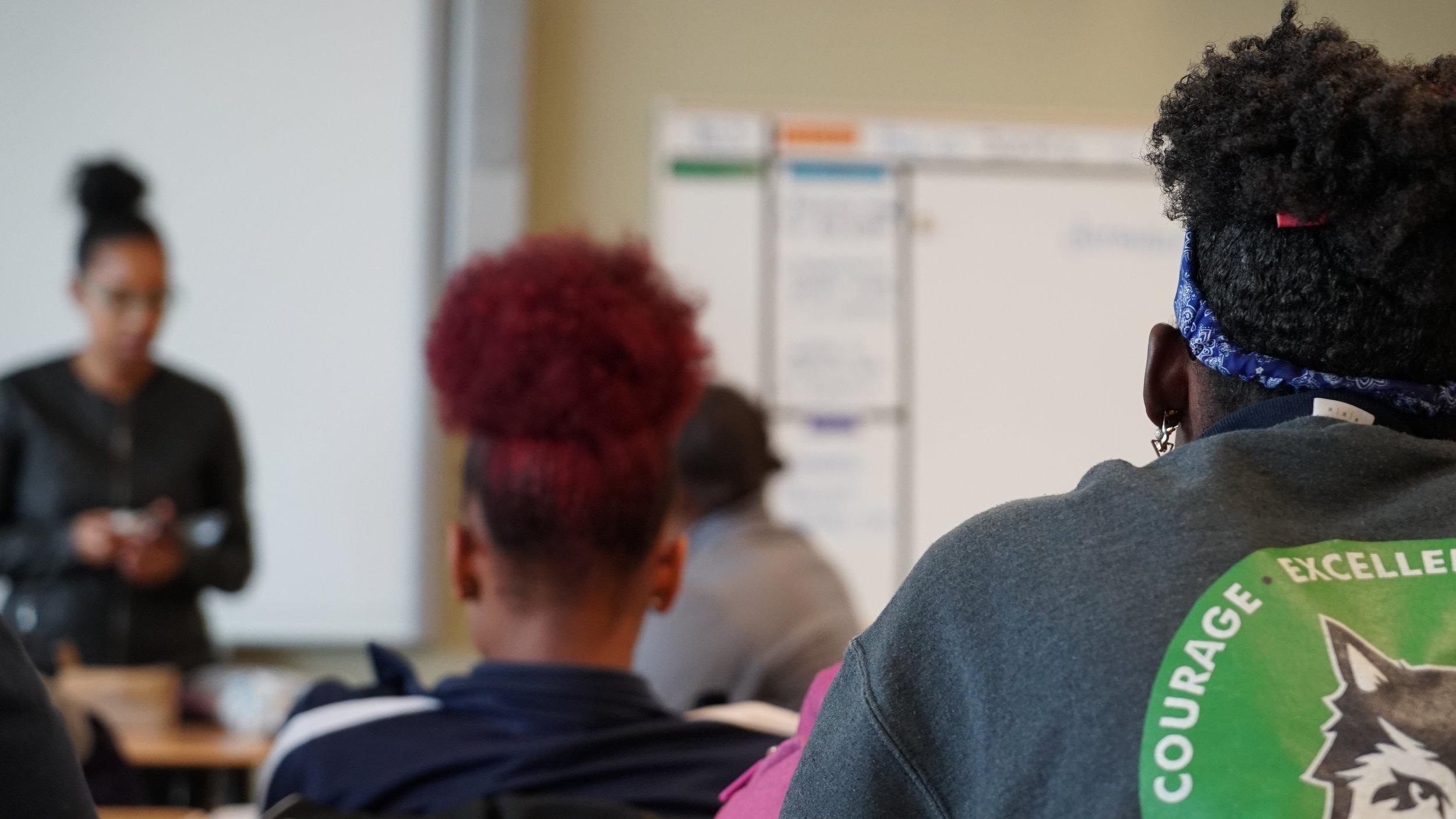Fighting Opposition for the Win
“I make sure students understand that I am not here to change values or make someone else wrong. I am here to share factual information so that they can make their own informed decisions for now or in the future.”
Ashley Gothard, MPH | BY-LA Health Educator
I am always excited to walk into a new classroom with a new set of faces that I will be teaching a comprehensive sexual health curriculum to. I always take a quick scan to see if they are nervous, jittery, excited, or nonchalant about the thought of sex-ed. Each cycle of students I get to know on a personal level. Some even admit personal traumas to me, and fortunately I am able to connect them with services. I always think, “would they have disclosed that to their parents? Their teacher? A friend?” I will never know, but I am grateful that I am able to create a safe space and be a person they can confide in. It’s these experiences that make me confident in what I do - not research.
Some students may oppose the class initially because this is not a topic they want to discuss with an adult, or their parents may have already discussed sex with them in their household. I make sure students understand that I am not here to change values or make someone else wrong. I am here to share factual information so that they can make their own informed decisions for now or in the future.
Students become invested to listen because they know they have the freedom to make their own decisions and I am not telling them what to do with their sexual lives. When we deliver our curriculum we have 12 modules and by the end of classes, engagement is high and it’s reflected by the students. After our last lesson we get feedback from our students about how it went by giving them a “post-test.” In my latest set of post-tests, when asked “What did you like most about the program?” one student wrote “How much the teacher actually wanted us to learn.” Another student wrote, “I like how they teach you about sex to the point where it’s not complicated.” Their responses assure me that I have done my job and reinforce how important it is for them to get this information.
I am able to see the impact first hand of comprehensive sex education, but unfortunately there can be opposition from a lot of people, from parents to government. Sometimes when we approach schools to ask if they’re interested in a sex-ed program, administrators are hesitant because of potential parent backlash. After all, they are concerned about test scores and don’t want to deal with the potential parent controversy of a sex-ed program. Parents have their own set of beliefs, which I do believe are important, and I understand that they may not want anyone else teaching their children topics they may find taboo. So yes, convincing administrators and teachers how important sex-ed is for their students can be difficult, but it is possible! I understand sex-ed is a touchy subject, so some important things we do are to:
- inform stakeholders of the benefits;
- walk them through the curriculum;
- provide a material overview;
- showcase other school partners;
- and, most importantly, remember that patience is essential to the process.
Patience with others as they begin to understand why I teach sex ed does not happen overnight, but it will come, and I will have a new classroom of faces to love.
“I am able to see the impact first hand of comprehensive sex education, but unfortunately there can be opposition from a lot of people, from parents to government.”

